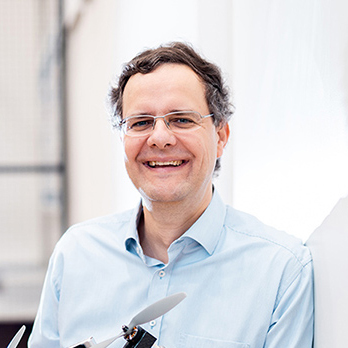
Christian Bettstetter
University of Klagenfurt and Lakeside Labs (Austria)
Christian Bettstetter is professor of mobile systems at the University of Klagenfurt, Austria, where he heads the Institute of Networked and Embedded Systems. He also serves as scientific director of Lakeside Labs, a research and innovation company. He earned his doctoral degree (summa cum laude) in electrical engineering and information technology from Technische Universität München, Germany. His research group focuses on wireless communications and self-organization in networked systems, with applications spanning telecommunications, robotics, and drones. Bettstetter has received several scientific awards, including best paper awards at IEEE ACSOS and SASO. His dedication to teaching was recently honored with the excellence in teaching award of his university.